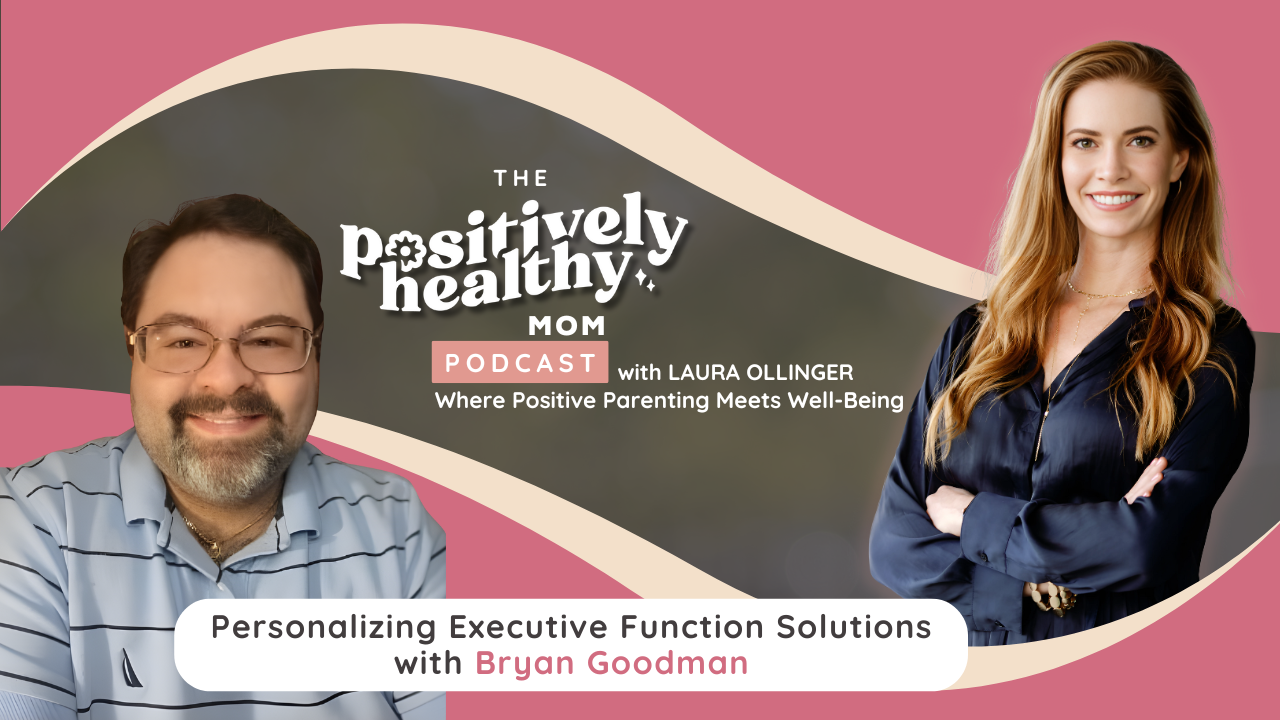Personalizing Executive Function Solutions
Welcome back to The Positively Healthy Mom blog! I recently had a fascinating conversation with Bryan Goodman, a youth mentor and coach and former school counselor who is known to his clients as Coach Bryan. With a background as a long-time teacher who transitioned into therapy and coaching after the major shifts of 2021, Bryan focuses on supporting teens and young adults, specializing in executive functioning challenges and the complex dynamics of the parent-teen relationship.
Like me, Bryan understands that guiding teens to success isn't just about grades; it's about building internal skills and fostering healthy communication at home.
The Executive Functioning-Relationship Connection
Bryan's typical client comes to him struggling with executive functioning (EF) skills—the mental processes that help us plan, focus, remember instructions, and manage multiple tasks. Since Bryan lives with ADHD, he brings a deeply empathetic, first-hand perspective to his work.
His philosophy on EF is clear: it’s not just about time management. It’s about:
Task Prioritization: Knowing which tasks matter most.
Motivation: Understanding what genuinely drives the individual client.
Limiting Beliefs: Addressing the internal thoughts that hold them back.
Crucially, these EF struggles are often tangled up with parent-teen relationships. For many teens, struggles with procrastination or organization are compounded by misunderstandings and miscommunication at home.
Clarifying Expectations: The Antidote to Conflict
The number one point of friction Bryan sees between parents and teens is expectations. As parents, we often think we've been clear, but our teens may hear a "suggestion" where we intended a "command."
Bryan emphasizes the need for crystal-clear communication:
Say What You Mean: If you need your teen to take an SAT prep course, say, "I need you to sign up for this course," not, "Have you thought about taking a course?" Fuzzy language can create conflict when the teen fails to follow an unstated rule.
Define the Nuances: Simple things like "Be home by 11:30" should be clarified. Does that mean 11:30 is the curfew and failure to meet it has consequences, or is it just a suggested time?
Acknowledge the Different Worlds: Bryan reminds parents that being a teen today—with constant digital input and social pressure—is fundamentally different from when we were their age. Adjusting our expectations to reflect this reality is vital.
The Most Difficult, Yet Most Important Tip: Allowing Failure
When asked for a practical tip for parents, Bryan offered one that's hard to hear but essential for growth: Allow your kid to fail.
In the age of instant answers and digital ease, our teens often struggle with delayed gratification and resilience. By stepping in to prevent failure, we rob them of the opportunity to learn how to pick themselves up.
This concept ties into scaffolding, which is the idea that parents provide a flexible, supportive structure—like the scaffolding on a building—that is gradually removed as the child's own skills develop.
The goal is to find the right balance:
Don't Helicopter: Scale back support so the teen can own the task.
Support, Don't Solve: When they do fail, approach it together. Identify the pieces that need to be picked up and lay out a process for how they will do it.
Communicate Belief: End the process by communicating, "You've got this, and I believe in you." This builds the internal confidence they need for future challenges.
Using Mindfulness to Tame the Chaos
Bryan integrates mindfulness into his work to help students manage the constant "firing" of thoughts that characterizes EF challenges. For him, mindfulness isn't about clearing the mind entirely; it's about alignment: aligning your thoughts, actions, and intent.
Practical mindfulness tools help ground a busy, stressed mind:
The 5-4-3-2-1 Method: Use the five senses to ground yourself in the present moment (5 things you see, 4 things you feel, etc.).
Thought Analysis: Once grounded, ask: What are the facts of the situation? What do I have control over? What is the plan for my action?
Mindfulness is a skill best learned and practiced when a person is feeling good, not just when they are stressed. Bryan strongly encourages practicing as a family, making it a "fun" activity that models stress management for younger children.
Final Advice: Be Patient (With Them and With Yourself)
Bryan's final advice to all parents is simple: Be patient.
Growth is a process, and it unfolds on your child's time frame. Give yourself grace, recognize the good job you've done, and trust that your teens will eventually get there. The growth is in the process, not the immediate result.
You can find Bryan online and learn more about his work at impactfulmentoring.com. You can also connect with him on social media.

